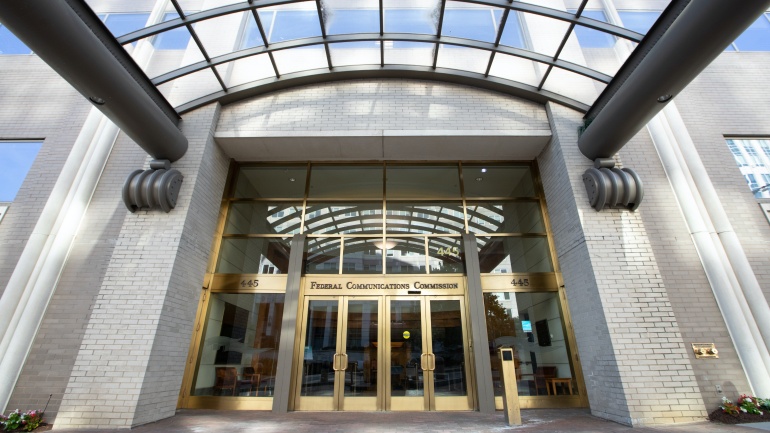Xiaomi unveils new flagship smartphones The Chinese tech giant Xiaomi has introduced its new flagship smartphones, the Xiaomi 12 and Xiaomi 12 Pro, which will go on sale in China from December 31st. The global launch of the Xiaomi 12 is expected to follow in early 2022. According to the company’s press release, the Xiaomi 12 and Xiaomi 12 Pro are powered by the latest Snapdragon 8 Gen 1 processor, and feature industry-leading DisplayMate A+ OLED displays and powerful imaging capabilities. During the presentation, Xiaomi CEO Lei Jun indicated that the new smartphone would be a direct competitor to the iPhone 13. Read more at: https://tinyurl.com/58byr3fu Telefónica acquires Ericsson 5G equipment to replace Huawei Telefónica, Spain’s leading telecommunications group, has bought 5G network equipment from the Swedish manufacturer Ericsson to replace some Huawei gear that it has deployed in Spain. According to the local newspaper Expansion, Telefónica had initially rolled out…
The Federal Communications Commission got a settlement from four firms in relation to emergency calling standards that were not delivered in 2020. The federal prosecution focused on the four corporations involved in the 911 calls, namely Verizon, AT&T, Intrado, and Lumen Technologies, and their inability to fulfill 911 call delivery commitments. Verizon has agreed to pay $274,000 to settle an inquiry into an outage that occurred on May 7, 2020. The other inquiries were all centered around outages on September 28, 2020. With its $460,000 payment, AT&T will resolve two investigations, while Lumen and Intrado will pay $3.8 million and $1.75 million, respectively. The massive payout demonstrates the corporations’ willingness to accept responsibility for their failure to effectively accommodate emergency calls. Each firm has also promised to put in place a compliance strategy. Within 90 days of the consent decree’s effective date, each carrier must examine and adjust…
Verizon gets approval for TracFone purchase Verizon stated in September 2020 that it will attempt to acquire TracFone Wireless, a pre-paid mobile phone operator, for $6.25 billion. The FCC approved the transaction last week, attaching restrictions that would safeguard TracFone customers in a variety of ways, including ensuring inexpensive 5G handsets and avoiding price rises, all of which will be evaluated on a regular basis by an independent agency. Verizon is also required to participate in the Lifeline program, which provides subsidies to low-income subscribers. TracFone is now one of the major carriers supporting the Lifeline program, with 1.7 million low-income subscribers participating across the country. Read more at: https://tinyurl.com/jxrh6p5v Tata Communications launches GlobalRapide Tata Communications, a worldwide digital ecosystem facilitator, has announced Tata Communications GlobalRapide, an end-to-end managed UCaaS that enables organizations to provide workers with technologically enhanced, sophisticated and intelligent collaboration experiences. With this new solution, Tata Communications…
Verizon launches Verizon 5G Edge with Microsoft Verizon has partnered with Microsoft to introduce the aptly named Verizon 5G Edge with Microsoft Azure Stack Edge cloud computing platform, fulfilling their stated commitment when they announced their cooperation last October. The platform can provide corporate clients with an on-premises, private edge compute solution that supports the ultra-low latency necessary for real-time enterprise applications. The collaboration with Microsoft provides 5G Edge to companies, lowering latency at the edge and allowing important, performance-sensitive applications to respond more rapidly and effectively. Read more at: https://tinyurl.com/8bz3rwdf FCC warns about fake broadband subsidy website The Federal Communications Commission (FCC) alerted the public about the discovery of a website that fraudulently promised to enroll customers in the agency’s Emergency Broadband Benefit (EBB) Program and encouraged individuals who visited the site to take precautions against fraud. A website named WiFi Freedom USA mimicked the government’s sign-up page, offering…
The United States Federal Communications Commission (FCC) has announced that it will fund new broadband rollouts across the country through the Rural Digital Opportunity Fund (RDOF). The FCC has announced its readiness to give the green light to more than $311 million in funding for the provision of broadband in 36 states. A total of 48 providers have been authorized for funding, and the FCC has noted that this financing will help nearly 200,000 homes and businesses in 36 states get access to gigabit speeds over the next ten years. Companies on that list include 3E8 Broadband Solutions, 4-County Fiber LLC, Aeneas Communications, Allen’s TV Cable Service Inc., Cincinnati Bell, Consolidated Communications, Cox Communications and more. Additionally, the FCC has issued a statement about its steps to increase oversight in the RDOF program. The Commission has stated that it will not approve of any service provider participating in…
Orange considers buying infrastructure assets it sold almost two decades ago Orange is considering a probable purchase of the former telecommunications infrastructure unit TDF. The company sold TDF nearly two decades ago to lessen its debt. Orange is considering combining TDF with the recently established European mast company TOTEM, as infrastructure appraisals have recently increased with interest from investors such as the US private equity firm KKR and Spain’s Cellnex. TDF, previously known as Télédiffusion de France, operates TV and radio towers, mobile sites, as well as fiber infrastructure and related services through around 19,000 sites, of which 7,300 are active. Read more at: https://tinyurl.com/2etpjpjn AT&T to modernize U.S. DOT’s network AT&T and the United States Department of Transportation (DOT) have signed a 12-year, $175 million deal to assist DOT in upgrading its IP and voice infrastructure. AT&T will supply DOT with virtual private networking and secure cloud technology, together…
Telinta, a global leader in hosted switching and billing for VoIP service providers, and TransNexus, a leader in developing innovative software for telecommunications networks, jointly announced today a solution to help VoIP service providers comply with STIR/SHAKEN call authentication and robocall mitigation regulations. TransNexus has made groundbreaking innovations in robocall mitigation with its ClearIP software platform. Telinta has integrated ClearIP into its cloud-based softswitch. Together the two leaders can help VoIP service providers meet their STIR/SHAKEN and robocall mitigation requirements, helping customers to avoid having their traffic blocked. TransNexus offers services for Telinta customers based both inside and outside the U.S. When a U.S.-based Telinta customer signs up with TransNexus, Telinta will send a request to TransNexus to create a digital signature and Telinta will include that signature on subsequent calls as they are routed through Telinta’s platform. For Telinta customers based outside the U.S., TransNexus can…
Most phones today allow users to see the calling party’s phone number before they answer. This feature is called Caller ID or Calling Line Identity (CLI). It lets people know who is calling and decide whether they want to answer the call or not. However, callers and criminals can purposely change the Caller ID so that the incoming call appears to originate from a trusted entity. This disingenuous practice is better known as spoofing. Unfortunately, there are more and more cases where callers and criminals purposefully change the caller ID in order to commit fraud. What is Caller ID spoofing? Spoofing occurs when a caller knowingly falsifies the information transmitted onto your phone screen, known as caller ID, to hide their true identity. Scammers often use the so-called ‘neighbors’ spoofing technique. When this technique is used, the incoming call appears to come from a local phone number. It could be…
FCC establishes Emergency Broadband Benefit program The FCC has recently held an open meeting in order to discuss its next priorities. One of the most important matters discussed was the new Emergency Broadband Benefit program, which Congress has instructed the FCC to initiate. As part of the Consolidated Appropriations Act, Congress has allocated $3.2 billion for the program. Broadband providers participating in the program will be able to offer discounts of up to $50 per month for Internet services and up to $75 per month for those services on tribal lands. Currently, it is unclear how long these broadband benefits will last. Read more at: https://tinyurl.com/jj52hlfl Sinch acquires Inteliquent Sinch AB, a Sweden-based company primarily engaged in the provision of cloud computing services, has signed a final agreement to acquire Inteliquent, the largest independent voice communications provider in the US, for an all-cash offer of $1.140 billion. The deal expands…
The United States Federal Communications Commission (FCC) has announced that, in reference to the recommendations of the Cloud Communications Alliance (CCA), the Secure Telephone Identity Governance Authority (STI-GA), a group supporting the timely deployment of STIR/SHAKEN protocol, has altered the requirements in their robocall prevention policy. Initially, the STI-GA policy required that only an entity with direct access to telephone numbers could partake in the framework, that must be implemented by all voice service providers. However, the CCA claimed that this specification puts service providers at a significant disadvantage. Therefore, the FCC has announced that the policy change will allow CCA members to take advantage of STIR/SHAKEN through the FCC’s Robocall Mitigation Database. Until then, the current Service Provider Code (SPC access key) access policy will remain in effect, said the FCC. This important reconsideration will allow all CCA members to implement the STIR/SHAKEN protocol and make sure…













